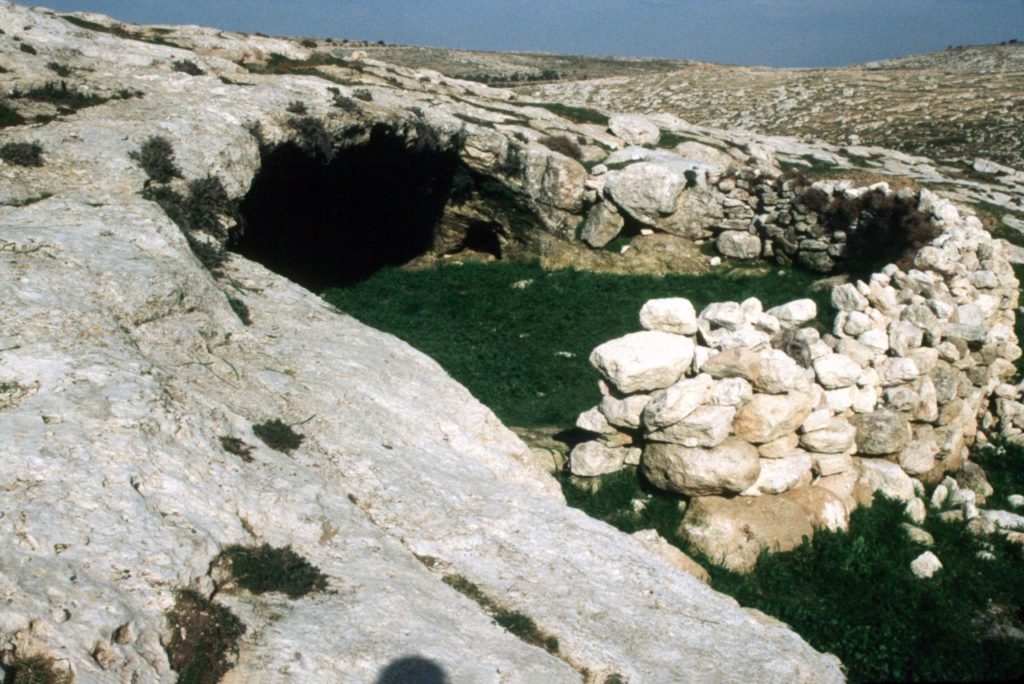Uncategorized
In a conversation with the religious leaders of His day, Jesus used an illustration that is lost on many in our non-agrarian culture. “I am,” He explained, “the door, if anyone enters through Me, he will be saved, and will go in and out and find pasture.” (John 10:9, NASB)

With this statement, not only did Jesus explain that He is the only path to salvation but also assures those who come to Him that they will have security within His fold.
Jesus was not, apparently, referencing any wooden barrier as the nearby photo verifies. There is no man-made door on the sheepfold Jesus invites us to. He, Himself, is the door. As Tolkien’s Aragorn assured the men of Gondor who were concerned that the city’s gate had been destroyed, “[M]en are better than gates, and no gate will endure against our Enemy if men desert it.” Hope in any manmade barrier is vain, for every gate, every door can be breeched by the Enemy.
However, the man Jesus is better than any door. For He will not desert His position when the Enemy attempts to assail His sheep. His sheep can rest in the security that only God come in the flesh can provide.
If you would have this security, then Jesus bids you to the entrance of His sheepfold. If you come, He will step aside and welcome you in. There you will find life. Not only that but the life He offers is not some what-rule-do-I-have-to-keep-now tedium; rather it is joyous life, a life of freedom, life in abundance. (John 10:10)
You may have heard the slang expression that so-and-so is “older than dirt.” This bit of exaggeration lends spice to succinct language, but it raises a question: how old is dirt anyway? Put another way, how old is the earth?

There are many types of scientists. Men and women who study how mountains and valleys are formed are called geologists. Folks who study plants and animals are called biologists, while those who study the planets and stars are called astronomers. Many scientists believe the earth is millions of years old. Their claim is based upon observing the fossil record and upon the time necessary for light to get to earth from the stars. In general Christians who lived before the 20th century believed that God created the earth about 4,000 years before Jesus was born. So who is right?
The short answer to this question is we are not certain. People who have studied this disagree. What Christians believe is that God made the world ex nihilo. Whether He chose to make it in 6-days just over 6,000 years ago or to make it over millions of years is debated still.
My opinion is that a natural reading of Scriptures leads to the conclusion that the earth is not older than 10,000 years. One must explain away a lot of Scripture to accept otherwise. Still, this is a topic upon which true Christians can disagree.
Now some will respond, “Well, you have to ignore a lot of science to believe that.” That would depend upon the whose assumptions are correct. There are problems with tools such as carbon dating which are used to determine how old “dirt” is – well, rocks, actually. But let us lay those problems aside. If carbon dating is to accurately measure elapsed time, things must have continued on in a consistent fashion. I call this the continuity assumption. It means nothing could have come along to screw up – there I go using technical scientific terms again – the timing mechanism which carbon dating relies upon. That is nothing “discontinuous” can have occurred during the eons being measured. (Discontinuous is the from Latin:disor “not” and continuare or “to continue” and thus means “not to continue.”[1])
However, God created the heavens and the earth (Gen. 1:1) That event puts the dis in continuousor nothing else does. To put it simply, God’s creative act raises a veil beyond which no tool of the scientist can gaze.
If you doubt that, consider this example. There are ways a coroner can estimate when a person died. These too rely upon some continuity between when the person expired and when the tests are run. In John 11, we learn Jesus raised a friend of His, Lazarus, from the dead. Suppose a day or two after this event, someone took Lazarus to a coroner and said, “When did this man die?” Let us assume the coroner actually saw the miracle, so he does not think you off your rocker. His tools could still not answer your question, why? Because a discontinuous event occurred since Lazarus’ death: the Lord Jesus made him ALIVE.
So yes, theologians do not know how old the earth is. But if we are logical – and honest – we must admit that scientists do not know either. Both draw their conclusions based upon assumptions which cannot be proven using science or logic.
[1]discontinuous. https://www.etymonline.com/search?q=discontinuous, Web. 14 Jun 2019